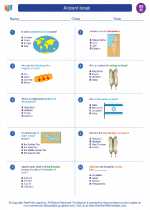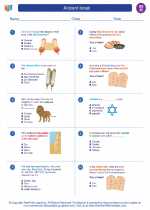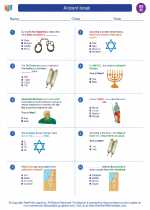Roman Civilization
The Roman Civilization was a powerful and influential civilization that emerged in the Italian peninsula around 753 BCE. It grew to become one of the largest empires in the ancient world, with its influence spreading across Europe, the Mediterranean, and parts of Asia and Africa. The civilization had a profound impact on art, architecture, law, language, and culture, and its legacy continues to shape the modern world.
Key Aspects of Roman Civilization
Government and Politics
The Roman Republic was initially governed by elected officials and a system of checks and balances. Over time, it transitioned into an empire with an emperor holding the most power. The Roman legal system, including the concept of "innocent until proven guilty," has had a lasting impact on Western legal traditions.
Art and Architecture
Roman art and architecture were characterized by grandeur and innovation. The Romans were known for their engineering feats, such as aqueducts, roads, and monumental buildings like the Colosseum and the Pantheon. Their art often depicted historical events, mythology, and portraits of emperors and citizens.
Religion and Mythology
The Romans worshiped a pantheon of gods and goddesses, with influences from Greek mythology. Their religious practices included rituals, sacrifices, and festivals to honor the deities. Christianity, which emerged during the Roman Empire, eventually became the dominant religion in the region.
Social Structure
Roman society was stratified, with distinct social classes including patricians (wealthy landowners), plebeians (common citizens), and slaves. Family and household were central to Roman social life, and the paterfamilias held significant authority over the family unit.
Study Guide Questions
- What were the key characteristics of the Roman Republic's government?
- How did Roman art and architecture reflect the values of Roman society?
- Describe the religious practices of the ancient Romans and their impact on daily life.
- Explain the social structure of Roman society and the roles of different classes.
[Roman Civilization] Related Worksheets and Study Guides:
.◂Social Studies Worksheets and Study Guides Eighth Grade. Ancient Israel

 Worksheet/Answer key
Worksheet/Answer key
 Worksheet/Answer key
Worksheet/Answer key
 Worksheet/Answer key
Worksheet/Answer key
